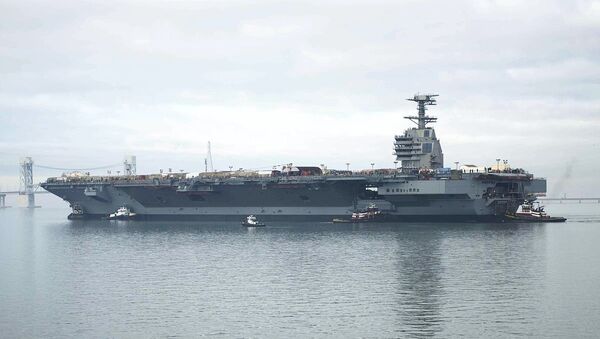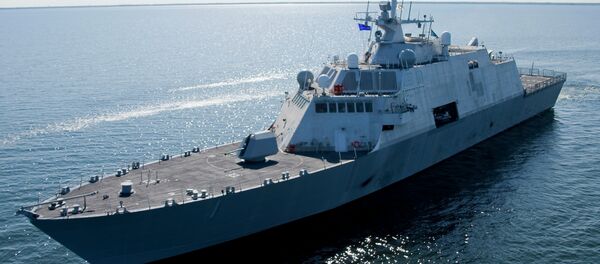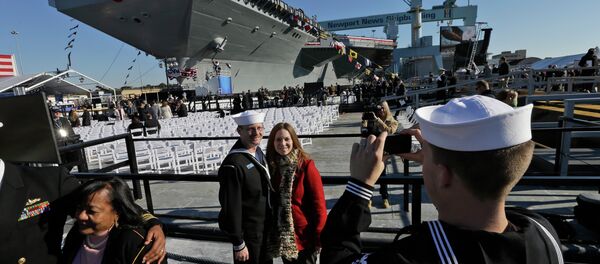In June, the $13 billion USS Gerald R. Ford, the most expensive warship ever built, experienced an electrical explosion in its second main turbine generator. This forced debris into the turbine, causing damage to the ship’s engines. A similar incident occurred one month later.
But the USS Ford is only one of the Navy’s problems. In the last 15 months, five of the Navy’s state-of-the-art Littoral Combat Ships (LCS) have broken down.
Addressing these failures, Navy Secretary Ray Mabus had different explanations for the problems in each ship type.
"The Ford is a textbook example of how not to build a ship," he told reporters, according to Breaking Defense.
"[We were] building it while it’s still being designed [and] trying to force too much new and unproven technology on it."
On the LCS program, Mabus was more forgiving. When asked if the Littoral Combat Ship’s failings were also "textbook," he said, "No."
"Every time you start a new class of ship…you’re going to have issues. LCS gets a lot of attention, but during the first deployment of an LCS to Singapore…it was ready for sea more than the [US] Pacific Fleet average," Mabus said.
"It’s got a lot of attention mainly because it looks different. It is a different kind of ship."
Throughout Mabus’ tenure, the Navy’s focus has been on increasing its fleet size.
"Quantity has a quality all of its own," he said, adding that the Navy aims to deploy 300 vessels by 2019, and 308 by 2021.
"308…is what we’ve been building to," he said.
"We are undergoing a force structure assessment right now. The CNO [Chief of Naval Operations Adm. John Richardson] said during hearings last year that he would bet a paycheck that the number is going up. I’m happy to bet the CNO’s paycheck too.
"Going forward whatever that force structure assessment is, that’s what we’ll have to build for."
The exploding generators are just one of several problems facing the Ford, repeatedly forcing delays to the ship’s delivery date.
"We continue to look for opportunities to get Gerald R. Ford to sea as soon as possible," Capt. Thurraya Kent, a spokeswoman for the assistant secretary of the Navy for research, development and acquisition, earlier this month.
"The Navy is evaluating the most cost-effective and efficient schedule to complete sea trials and ship delivery," she said, adding that it "wouldn’t be prudent" to provide a new delivery date estimate.





